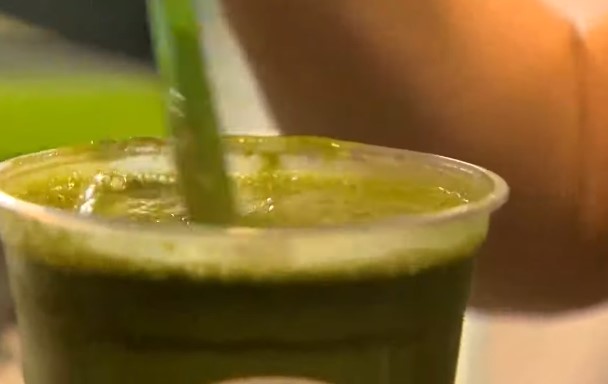1 Teaspoon of Moringa Powder Nutrition Facts
Venturing into the world of 1 Teaspoon of Moringa Powder nutrition facts, you're about to uncover the potent power packed into this seemingly simple green powder. Prepare to be enthralled as we delve into the nutrient-rich profile of this superfood, revealing the surprising health benefits tucked into each tiny spoonful, compelling you to explore the full potential of moringa in your daily diet.
Moringa nutrition facts reveal the immense power packed in this green superfood. From the Himalayas’ foothills to Africa’s bustling local markets, Moringa has been a staple for thousands for its unparalleled nutritional value. Wondering what the hype is all about? Let’s embark on a deep dive into the abundant world of Moringa!
Unraveling the Powerhouse: Moringa Nutrition Value
Renowned as the ‘Drumstick Tree’ or the ‘Miracle Tree,’ Moringa boasts an impressive nutritional profile. But why does it hold such a revered place in traditional medicine and modern nutrition?
- Moringa nutritional Profile: Its leaves contain more than seven times the vitamin C of oranges, four times the calcium of milk, and twice the protein of yogurt.
- Rich Protein Source: Moringa offers a plethora of amino acids, the building blocks of proteins, essential for muscle repair and growth.
- Mineral Goldmine: From magnesium to Zinc, Moringa ensures a balanced mineral intake, vital for numerous bodily functions.

What are the 92 nutrients in Moringa?
Yes, you read that right! Moringa boasts 92 nutrients, making it one of the most comprehensive superfoods.
- Multiple Vitamins: It carries vitamins A, B, C, D, and E in abundance.
- Rich Mineral Content: Think of a mineral, and chances are, Moringa has it. Especially noteworthy is the Zinc in Moringa powder, which plays a crucial role in immunity and DNA synthesis.
- Amino Acid Variety: Moringa powder ensures a complete protein profile by covering essential and non-essential amino acids.
Decoding Measurements: From Teaspoon to Tablespoon
When consuming Moringa, measurements matter. After all, you wouldn’t want to miss out on its abundant benefits.
- 1 tablespoon of Moringa powder in grams is roughly equivalent to 7 grams.
- A teaspoon, on the other hand, weighs approximately 2.3 grams.
- 1 teaspoon of Moringa powder magnesium content is roughly 24 mg, a considerable amount for such a small serving!
Read also:
Moringa Powder Nutrition Table (1 Teaspoon)
| Nutrient | Amount | % Daily Value* |
|---|---|---|
| Calories | 10 | – |
| Total Fat | 0.2g | 0% |
| Sodium | 1mg | 0% |
| Total Carbohydrates | 1.5g | 0% |
| Dietary Fiber | 0.3g | 1% |
| Protein | 0.9g | 2% |
| Vitamin A | 150 IU | 3% |
| Vitamin C | 3.6mg | 6% |
| Calcium | 30mg | 3% |
| Iron | 0.6mg | 3% |
*Percent Daily Values are based on a 2,000-calorie diet. Your daily values may be higher or lower depending on your calorie needs.
Frequently Asked Questions
What are the health benefits of consuming moringa powder?
Moringa powder has been linked to numerous health benefits, including supporting a healthy immune system, promoting healthy digestion, and providing natural energy. Additionally, its high antioxidant content helps protect cells from oxidative stress and combat inflammation. Moringa powder is also rich in essential vitamins and minerals, such as vitamins A, C, calcium, and iron, contributing to overall health and well-being.
How can I incorporate moringa powder into my diet?
There are various ways to add moringa powder to your diet. Mix it into smoothies, juices, or water for a nutrient boost. You can sprinkle it over salads, yogurt, or oatmeal or add it to your favorite baked goods recipes. Moringa powder can also be used in savory dishes like soups, stews, and sauces to enhance their nutritional content.
Are there any side effects or precautions to consider when consuming moringa powder?
While moringa powder is generally considered safe for most individuals, it is essential to consume it in moderation, as excessive intake may cause gastrointestinal issues such as diarrhea, nausea, or heartburn. Pregnant or nursing women and individuals with specific health conditions or taking medications should consult their healthcare professional before incorporating moringa powder into their diet.
Can moringa powder be used as a supplement?
Yes, moringa powder can be used as a supplement to help fill nutritional gaps in your diet. However, it's essential to remember that it should not replace a well-balanced diet consisting of various whole foods. Instead, use moringa powder as an additional source of nutrients to support your overall health and wellness goals.
Conclusion
Unveiling the Moringa powder nutrition facts showcases the vast potential this humble plant carries. Whether you sprinkle it over your morning smoothie or integrate it into a hearty soup, Moringa seamlessly fits into any diet, promising a nutritional boost. As we wrap up this enlightening journey, remember that while Moringa stands as a beacon of nutrition, always consult a healthcare professional before making any drastic changes to your diet. After all, nutrition is not just about what we eat but how our bodies assimilate it. Here’s to a healthier, Moringa-infused life!






